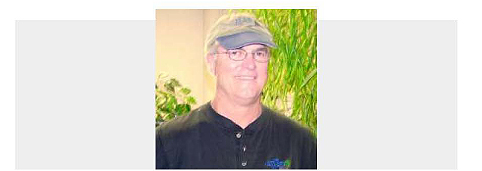|

BEACON PHOTO/PAT HATFIELD
| |
Idea man- George Taylor, founder of the Watershed Laboratories in DeLand, is proud of the results he's achieved with a special spray additive he created. The additive targets the waxy shell on Asian cycad scales, and delivers pesticide to the pests that kill sago palms |
By Pat Hatfield
BEACON STAFF WRITER
posted Jun 30, 2008 - 4:01:16pm
Chemist George Taylor is walking on cloud nine these days.
"It's exciting. It may turn out to be something big," he said.
"It " is the response to an insecticide-spray additive he developed. the additive chemically bonds to and delivers pesticide throuth the waxy, virtually impenetrable carapace of an insect called the Asian cycad scale.
Nothing much bothered the scale, which settles on the leaves and growing parts of king and queen sabal palms, sucking down their fluids and killing the plant.
The Asian scale was accidentally introduced into Miami from Southeast Asia in 1996, and like many invasive species, has no natural enemies in Florida.
Within a few years, the insect wiped out 80 percent of the king and queen sago palms in South Florida, and has now destroyed about 50 percent of the sago
Related Topics
Alleged palm-fronds holdup foiled
Leaves of infested sagos look like they're covered with snow. That's the insect. Leaves turn yellowish brown as the scale devour their nourishment.
Taylor, founder and director of the watershed Laboratories in DeLand, is a sago palm devotee. His own yard is covered with them, and he began experimenting with ways to rid sagos of the deadly cycad insects.
The result is the spray additive, which proved successful on his sagos, and on infested sagos at Stetson University and Sanford Elementary school, where Taylor was allowed to test the compound, beginning late last year.
Now, there's no sign of the Asian scale.
Last month, Taylor got the Florida Department of Agriculture's OK for the additive.
He said, while it's not an endorsement, it exempts the additive from Department of Agriculture monitoring.
Taylor has applied for a patent.
June 18, Taylor met with Paul Carus III of Carus Corp. of Peru, Ill., who flew to DeLand to investigate the additive. Carus Corp. manufactures products for municipal, industrial and environmental markets.
"We're looking to being a supportive supplier, supplying materials, and any way we can help technically," Carus said.
Taylor is already selling the additive out of the Watershed Laboratories office.
"One man read about the treatment on the Internet. He came in and about bought us out," Taylor said.
The man has 25 large sago palms on his property-big ones-and shares Taylor's passion for them. The man said he would report back results of the treatment.
Taylor is hoping Carus or another company with manufacturing facilities will buy the patent from him, or work with him on larger-scale manufacturing.
Meanwhile, "At least, we're saving the sagos. They could be exterminated if we don't do something about it," Taylor said.
His next project will be to investigate why the Asian-scale insects zero in on sago palms.
-pat@beacononlinenews.com
|

